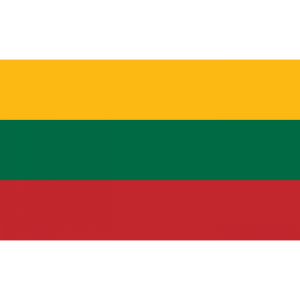Language/Lithuanian/Vocabulary/Family
Hi Lithuanian learners! 😊
In this lesson, we will learn about Lithuanian family vocabulary. Family is one of the most important aspects of Lithuanian culture, and it is essential to know the names of your family members as you interact with Lithuanian people.
Finish this lesson and explore these related pages: Lithuanian Vocabulary → Shopping Vocabulary, Feelings and Emotions, Introducing Yourself & Unique Expressions.
Lithuanian Family Vocabulary[edit | edit source]
Here is a list of Lithuanian family vocabulary. Learn how to say these words and practice them with your friends or family members:
| Lithuanian | Pronunciation | English |
|---|---|---|
| Tėvas | [tḗvːas] | Father |
| Motina | [mʊ́tɪnɐ] | Mother |
| Sūnus | [suːnʊs] | Son |
| Dukra | [dukɾɐ] | Daughter |
| Brolis | [bɾolʲɪs] | Brother |
| Sesuo | [sɛsʊò] | Sister |
| Vaikas | [vɐɪkɐs] | Child |
| Senelis | [sɛnɛlʲɪs] | Grandfather |
| Senelė | [sɛnɛlʲeː] | Grandmother |
| Dėdė | [dʲeːdʲɛ] | Uncle |
| Teta | [tɛ́tɐ] | Aunt |
| Arti giminaičiai | [ɐrtʲɪ ɡɪmʲinai̯tʃɐɪ̯] | close relatives |
| Tolimi giminaičiai | [tɔlʲɪmɪɡɪmʲinai̯tʃɐɪ̯] | distant relatives |
Family Dialogue[edit | edit source]
Here is a dialogue to help you learn Lithuanian family vocabulary in context:
- Mama: Sveikas, sūnau! Kaip sekasi? (Hello, son! How are you?)
- Sūnus: Labai gerai, ačiū, mama. O kaip sekasi tėčiui? (Very well, thank you, mom. How is dad?)
- Mama: Jis taip pat jaučiasi gerai. Ačiū, kad klausiesi. (He also feels good. Thank you for asking.)
- Sūnus: Ar dukra jau atėjo namo? (Has my sister come home yet?)
- Mama: Taip, ji jau čia yra. (Yes, she is already here.)
- Sūnus: Tada aš einu pas ją. Ačiū, mama. (Then I'm going to her. Thank you, mom.)
- Mama: Visada mielai, sūnau. (Always welcome, son.)
In this dialogue, you can see some family members, such as "mama" (mom), "sūnus" (son), and "dukra" (daughter). You can also see some basic Lithuanian phrases, such as "kaip sekasi?" (how are you?) and "ačiū" (thank you).
Interesting Facts[edit | edit source]
- In Lithuania, families are often very close and frequently get together for holidays and other special occasions. - The traditional Lithuanian family structure is patriarchal, with the father as the head of the household. - Lithuanian is a gendered language, with different forms for masculine and feminine nouns. For example, "tėvas" (father) is masculine, while "motina" (mother) is feminine.
Practice Makes Perfect[edit | edit source]
To improve your Lithuanian vocabulary, you can practice with your friends or find native speakers on Polyglot Club and ask them any questions. You can also check out the vocabulary section for more words and phrases.
Thank you for reading! We hope you have enjoyed learning about Lithuanian family vocabulary. 😊
➡ If you have any questions, please ask them in the comments section below.
➡ Feel free to edit this wiki page if you think it can be improved. 😎
Sources[edit | edit source]
- Learn 28 Valuable Lithuanian Vocabulary For Family To Learn ...
- Family words in Lithuanian
- Lithuanian language - Wikipedia

